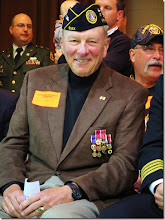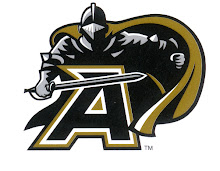

On this Father's Day weekend, I would like to share with you some thoughts on 14 fathers for whom I am grateful.




Thoughts from Colonel Ken









The skies over Normandy are invariably filled with dark rain clouds. But on one day in late April the sky was cloudless and the English Channel tranquil. Youngsters built sand castles on Omaha Beach and dogs romped in the surf. It was a vastly different scene from the bloodshed and violence that occurred on this same beach 65 years ago.
In an effort to understand what the GIs experienced on that fateful day of June 6, 1944, I climbed up a steep hill to the plain above the beach. Unlike the soldiers, I didn't carry an 80-pound pack on my back. And even though I observed German fortifications on my way, no one was firing at me.
These fortifications are a reminder that despite feints to Calais and bombing along the coast prior to the invasion, Nazi forces were well ensconced when the U.S. and its allies landed. Most of the bombs aimed at these German installations landed several kilometers inland -- a condition that distinguished Omaha Beach from Utah Beach. Omaha Beach was Bloody Omaha, a scene of so much death that it was unprecedented in American history. One soldier noted "there were body parts everywhere and the sea turned red with blood."
Many never made it to the shore from their landing crafts. Some were shot and some drowned, not realizing that if you wear a flotation device around your waist instead of under your arms it may not be possible to stand in the turbulent surf with a heavy pack. There was panic, confusion, camaraderie and bravery on the beach that day that changed the world.
The cemetery for the fallen overlooks Omaha Beach. It was noon when I stood at the edge of the cemetery, looking out at row after row of the graves. The bells played "God Bless America." There was a burly fellow wearing steel- frame glasses standing in front of me, most likely an octogenarian. As the bells sounded our eyes met. I wanted to say something to him, but he removed his glasses and wiped the tears from his eyes. Words were unnecessary; he and I shared a silent understanding.
There is simply no way to describe the sacrifice Americans made on the D-Day invasion to reclaim Europe from the grip of totalitarianism. Even the notoriously dispassionate Europeans realize that this is consecrated ground, a place where angels spread their wings to honor the deeds of youthful warriors. No St. Crispin speeches were necessary here, for this Band of Brothers knew what need not be stated: They were saving Europe from enslavement.
As a local Normandy resident wrote during the occupation, "A German lieutenant said 'we are your masters.' Well they were, until the Americans arrived." Gen. Dwight D. Eisenhower was a 20th century Moses. Gen. George Patton's Third Army fanned out across the northern tier of France. Though he had his detractors, Gen. Patton knew how to fight and win.
We have grown complacent as a people in the last six and a half decades since the war in Europe reached the beginning of the end. But it is hard to remain unemotional at the hilltop cemetery that honors those who made the ultimate sacrifice so that we may live in freedom.
Though we owe these men a debt we can never repay, what we can do is honor them. Their bravery can still inspire if the story of D-Day is told with passion and honesty.
The world offers challenges each year since freedom is tested in each generation by new pharaohs. We need the guardians of liberty to remind us how precarious that freedom is. We need to rise to the occasion the way young American soldiers did on June 6, 1944. They are a constant reminder that liberty requires vigilance and courage if it is to survive.
Mr. London is president of the Hudson Institute and professor emeritus at New York University. He is the author of "Decade of Denial" (Lexington Books, 2001) and "America's Secular Challenge" (Encounter Books, 2008).
 Above is a picture of some young guy and the first car he ever owned, a Chevrolet Corvair Corsa. Not nearly as sporty as the Corvettes, GTO's and Pontiac Le Mans
Above is a picture of some young guy and the first car he ever owned, a Chevrolet Corvair Corsa. Not nearly as sporty as the Corvettes, GTO's and Pontiac Le Mans


